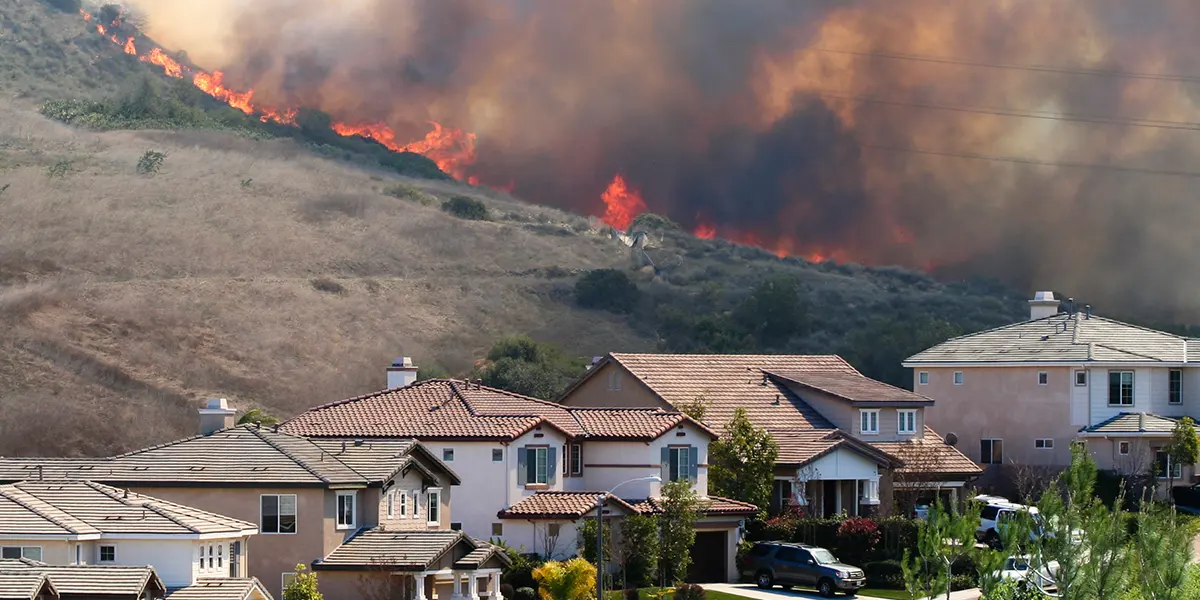Central banks are becoming increasingly involved in the efforts to ward off climate-related risks. After all, climate change is already starting to have macroeconomic implications relevant for monetary policymakers. What does the Bank of England have to say on the subject in its most recent contribution?
Central banks and financial oversight are ever more actively involved in mitigating the impact of climate change on financial stability. Among them, the Bank of England (BoE) has played a pioneering role. At the latest since then-governor Mark Carney's 2015 landmark speech on breaking the tragedy of the horizon, the BoE has spearheaded several initiatives aimed at warding off climate-related risks. Thus, the BoE has contributed to the relevant work streams of the Basel Committee on Banking Supervision (BCBS), the Financial Stability Board (FSB), or co-founded the Network for Greening the Financial System (NGFS).
In its newest contribution entitled Climate change: possible macroeconomic implications, specialists from the Bank’s Climate Hub and several other departments offer a synthesis of how the physical impacts of climate change and the transition to net zero might impact the economy and monetary policy, with some focus on the UK.
Macroeconomic effects of physical and transition impacts
The BoE economists start by looking in the rearview mirror of academic literature on the effects that more extreme weather and a warmer climate have on the economy. Somewhat unsurprisingly, individual natural catastrophes have a largely negative impact on GDP and may even temporarily raise inflation, in particular when it comes to food prices. In the long term, the impact may be evident on a macroeconomic scale, e.g. through reduced labour productivity or political instability.
On the other hand, the authors note, there are a number of impacts on the macroeconomy that arise out of the transition processes, e.g. adjusting policies and the adoption of new mitigation technologies. The BoE experts recognise, however, that while the economic literature has so far focused on market-based climate policy mechanisms, "many other climate policies will need to be deployed (...), of which we have much less understanding." In their opinion, net-zero policies are likely to have both supply and demand effects on the macroeconomy, though it depends on institutional factors, such as the climate policy mix and how governments use carbon tax revenues. Moreover, while the estimated empirical macro effects have been rather small, the situation may turn around as historical carbon prices, on which most studies have been based, are low.
Last but not least, BoE draws attention to possible uncertainty effects on investment and inflation. For example, if increases in carbon prices are inflationary, these could lead to so-called 'second-round effects' — resulting in expectations of higher inflation rates, and subsequently, to more inflation later going forwards.
Effects on the long-run equilibrium interest rate
Monetary policy responds to cyclical shocks against a larger macroeconomic background. An important part of capturing this background's essence is the so-called equilibrium real interest rate (R*) – defined as the inflation-adjusted interest rate that "sustains the actual output level of the economy in line with its potential and inflation at target." But how does this relate to climate-related risks?
The BoE economists argue that one of the key influences on R* is that more common natural disasters, and the subsequent increase in the volatility of output, may raise the risk premiums. This goes to say that, the higher macroeconomic volatility, the larger the compensation that risk-averse households will require to lend capital to firms, compared to risk-free bonds. Consequently, this brings up firms' financing costs and reduces their demand for capital — in equilibrium, this lowers R*. Similarly, climate-related risks such as reconstruction after a hurricane will ultimately lead households to accumulate more wealth as a precaution against this volatility. All else being equal, a higher supply of wealth to finance investment also works to lower R*.
The picture is more mixed as far as the transition is concerned. On the one hand, the vast investments required across the economy increase the demand for capital, which will push R* up. On the other hand, if investors view these new investments to be riskier, then the risk premium may rise, bringing R* down.
A survey of UK companies shows that 44% of firms plan to increase capital expenditure in response to climate change, about a third of these by 10% or more. This is consistent with net-zero scenarios of sharply increased investment. This increase is highly uneven across sectors of the economy, with some planning to invest much more than others."
Monetary policy considerations
BoE experts opine that climate change may involve new sources of trade-offs for monetary policy. To the extent that investments facilitating the green transition tend to pay off in the long term, monetary policy can facilitate it by safeguarding price stability and trust in the monetary regime. This keeps the inflation risk premia component of interest rates low and reduces the financing costs of long-horizon transition investments.
In the short term, monetary policy is adjusted depending on its effects on inflation and economic activity. Some economic events push both in the same direction, such as an increase in transition investments results in higher economic activity and inflation.
The BoE admonishes though that other economic developments related to climate may push inflation and economic activity in opposite directions. For example, a carbon pricing-related jump in the costs of fossil-generated energy may lead to bigger energy bills and higher inflation. A situation like this can create an economic activity pinch. (Although for rather different primary causes, we can observe this happening with the current energy crisis in Europe.)
Moreover, the authors argue that the ‘relative price shocks’ stemming from the transition to net zero may be different from the kinds of shocks that the monetary policymakers have faced in the past. And while the BoE’s stance is that monetary policy must allow the economy to come to grips with such shocks, climate change-related shocks may exert "a generalised and persistent effect on inflation." For example, the transition-induced reallocation of resources across different sectors of the economy may require looser monetary policy than in the absence of such a reallocation.
Lastly, the BoE points out that central bank-set interest rates influence spending, saving and investment decisions through channels such as market interest rates, asset prices, credit supply, expectations, and exchange rates. For instance, the market interest rate channel may be influenced by climate change, if citizens start saving and businesses delay investments in response to economic uncertainty.
Nonetheless, things look different with another channel through which monetary policy operates — asset prices. A delayed, forced adjustment to physical and transition risks — be it by a sudden policy shift or an extreme weather event — could lead to sharp revaluations of a wide range of assets in the economy. A chain reaction is plausible in such cases: Businesses' and households' collateral value can drop, changing their ability to borrow, potentially affecting banks' capital and liquidity positions and, ultimately, their capacity to lend to the wider economy. Thus, the BoE specialists argue, climate change-induced structural changes may also alter the channels through which the instruments of monetary policy take impact on inflation and economic activity.
How to navigate monetary and macroeconomic uncertainty?
A Decision Maker Panel survey from autumn 2021 (quoted by the BoE paper) suggests that some 23% of real estate firms and 17% finance firms cite climate change as a top three source of uncertainty. Conversely, the remaining 77% and 83% of companies in the respective sectors may not fully appreciate and price climate risks.
The 2013–14 floods in the UK teach us a lesson: A 2021 study by BoE’s experts Nicola Garbarino and Benjamin Guina found that the sale price of inundated UK residential houses fell by 4.2%, relative to equivalent non-flooded properties.
Quantifying the Risk
Quantifying and understanding risks is key to building climate resilience in high-risk areas and avoiding similar losses. The benefits will likely far outweigh the investment required for pre-emptive measures.
Get in touch with our team and discover how you can leverage our climate risk platform Spectra to assess the potential threats to your assets and portfolio, posed by the progressing warming of the climate, and the likelihood of extreme weather events.
Sources
- https://www.bankofengland.co.uk/climate-change
- https://www.bankofengland.co.uk/speech/2015/breaking-the-tragedy-of-the-horizon-climate-change-and-financial-stability
- https://www.bankofengland.co.uk/quarterly-bulletin/2022/2022-q4/climate-change-possible-macroeconomic-implications
- https://www.sciencedirect.com/science/article/abs/pii/S1572308921000346





